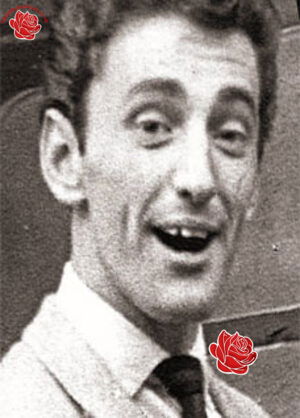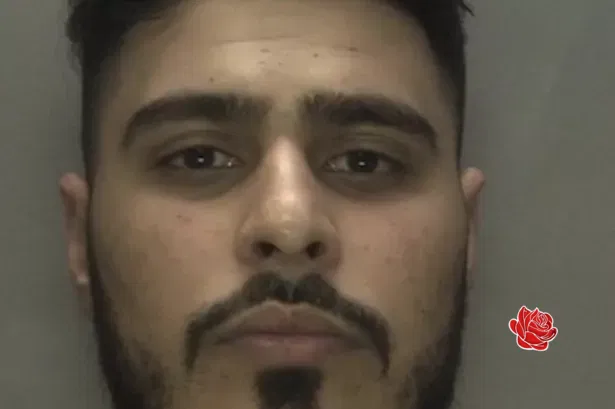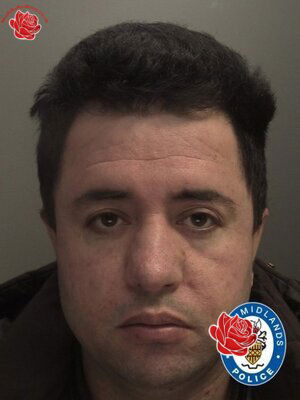Anthony Hall's Social Media Accounts
Know a Social Media Account Linked to Anthony Hall?
Want to add information? Log in to your account to contribute accounts and phone numbers.
ANTHONY HALL FROM ALUM ROCK LINKED TO COLD CASE MURDER IN BIRMINGHAM
The tragic case of Jacqueline Mary Thomas, a 15-year-old girl from Alum Rock, Birmingham, remains one of the most haunting unsolved crimes in the city’s history. Jacqueline, born in 1945 or 1946, was employed at Birmingham’s Hughes Biscuit Factory and was one of eight sisters living in the Alum Rock area. On the evening of August 18, 1961, she attended a funfair at Ward End with friends, a popular local event that drew many young people from the neighborhood.At approximately 10:30 pm, Jacqueline was last seen alive, engaged in conversation with a young man. Her family, concerned when she failed to return home, reported her missing. Over the following days, police launched an extensive investigation, which involved hundreds of officers canvassing more than 1,000 homes in the Alum Rock and surrounding areas. They interviewed her family, friends, colleagues at the biscuit factory, and individuals connected to the fair. Despite their efforts, no immediate suspect was identified, and the case went cold for over four decades.
On August 25, 1961, a dog walker discovered Jacqueline’s body hidden among the undergrowth at disused allotments near Everton Road, close to her home. The young girl had been sexually assaulted and strangled, with police estimating she had been dead for several days. The scene showed no signs of a struggle, leading investigators to believe she was taken there after her death. The discovery prompted a massive police response, with officers visiting more than a thousand homes, conducting interviews, and issuing posters seeking information. A notable appeal was made during a football match at St Andrew’s Stadium, where police sought witnesses who might have seen Jacqueline speaking with a young man at the fair.
Witnesses at the time recalled Jacqueline speaking with a young man at the fair, who was later identified as Anthony Hall, a 24-year-old man living in Birmingham. Hall was married and a father of one. He admitted to being at the fairground on the night Jacqueline was last seen, and acknowledged that they had embraced and kissed. However, he denied any involvement in her murder. Hall also asked his mother to provide a false alibi, fearing his wife might discover he had been “larking about” with girls. Despite being considered a suspect, there was insufficient evidence to charge him with Jacqueline’s murder, and he remained under suspicion for many years.
In a subsequent inquest, Hall was called as one of 53 witnesses. He requested to testify in the witness box, stating, “Though he may not be an angel, he wants the finger of suspicion which has been levelled at him removed.” The jury ultimately returned a verdict of “murder by some person or persons unknown,” leaving the case unresolved.
Meanwhile, in 1969, Anthony Hall was convicted of a separate murder involving 16-year-old Sylvia Whitehouse. Hall had stabbed Sylvia to death with a screwdriver after offering her a lift in his car. Her body was found by a lorry driver in December 1968 on waste ground at Bickenhill Lane, near Birmingham Airport. The area was a popular spot for courting couples, earning the case the nickname “Lovers’ Lane Murder.” Hall was sentenced to life imprisonment and remained incarcerated until his death in 2011.
In an effort to revisit cold cases, West Midlands Police’s Major Crime Review Team re-examined the Jacqueline Thomas investigation in early 2007, utilizing advances in DNA technology. The case files were scrutinized, and new evidence was sought. By November 2007, authorities decided to charge Hall with Jacqueline’s murder. He appeared at Birmingham Magistrates’ Court on November 29, 2007, where he denied any involvement and was remanded in custody.
However, at a hearing in Birmingham Crown Court on August 19, 2008, Judge Frank Chapman ruled that Hall should not stand trial. The judge explained that the case was too old, and the likelihood of a fair trial was diminished due to the death or illness of key witnesses and the deterioration of evidence over time. He stated, “Since the 1961 investigation, 21 witnesses have died, while others could not be traced or were too ill to give evidence. The police also failed to retain crucial evidence, making it unlikely that witnesses could recall events with sufficient clarity.” Consequently, the proceedings against Hall were stayed.
Despite the legal setback, the case remains a poignant reminder of a young girl’s tragic death. Anthony Hall, who was also linked to the 1969 murder of Sylvia Whitehouse, died in 2011 at a hospice after a long illness. He was still in custody at the time of his death, leaving the unresolved case of Jacqueline Thomas’s murder as a somber chapter in Birmingham’s criminal history.


